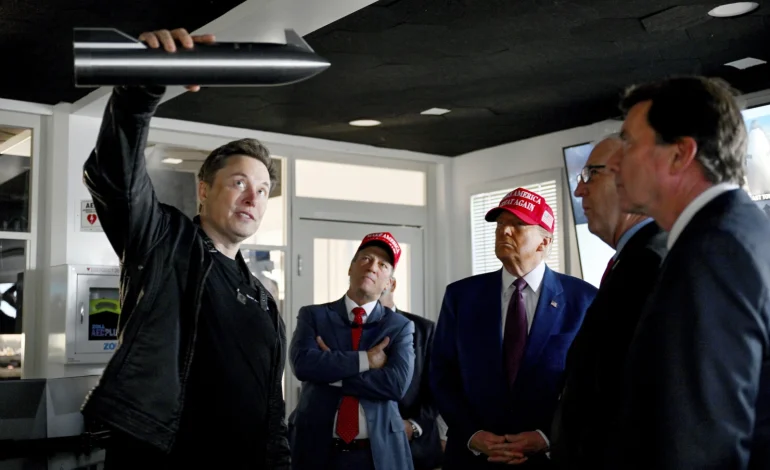Elon Musk Reverses Course on Threat to Retire SpaceX’s Dragon Spacecraft

Elon Musk appeared to pull back from a public threat to decommission SpaceX’s Dragon spacecraft on Thursday, after a heated exchange with President Donald Trump over government contracts, the Associated Press reports.
The reversal came just hours after Musk posted on X that his company would “begin decommissioning its Dragon spacecraft immediately,” following Trump’s warning that his administration might cut federal support for Musk’s ventures.
The back-and-forth unfolded as the two prominent figures clashed on social media, drawing attention to SpaceX’s crucial role in US space operations. In a later reply on X, Musk indicated he would not proceed with the decommissioning, saying, “Good advice,” in response to a user urging him to take a step back.
The Dragon capsule, developed with the help of US government contracts, is essential for transporting astronauts and cargo to the International Space Station (ISS). Since 2020, it has been the only American spacecraft capable of carrying crews to and from the ISS. NASA also relies on SpaceX for other key missions, including delivering scientific payloads and supporting future lunar missions under the Artemis program.
While Boeing’s Starliner spacecraft is being developed as an alternative, its performance has yet to match that of SpaceX. Starliner’s most recent crewed test flight encountered major delays, forcing two NASA astronauts to return on a Dragon capsule after a nine-month mission. Starliner remains grounded, with further testing under consideration.
In addition to crewed missions, Dragon cargo capsules are regularly used to resupply the ISS with food, equipment, and scientific instruments. SpaceX is also preparing to launch another privately chartered mission next week using a Dragon capsule, this time in partnership with Axiom Space.
NASA has increasingly relied on SpaceX since the company’s first successful crew launch in 2020. Before that, the US depended on Russia’s Soyuz capsules, which remain in use under a joint arrangement to ensure continued access to the ISS. Each Soyuz carries a mixed crew of Russian and American astronauts, maintaining bilateral presence on the station at all times.
SpaceX has become a major NASA and Pentagon contractor in recent years, launching science satellites, military payloads, and developing systems for future lunar landings. Its Starship rocket is central to NASA’s Artemis plans, intended to land astronauts on the Moon in the coming years. However, the vehicle’s recent test flights have been marred by instability, with the most recent launch ending in the vehicle’s destruction.
The company is also contracted to help deorbit the ISS when it reaches the end of its operational life.
The dispute between Musk and Trump stems partly from Musk’s criticism of a recent congressional spending bill, which excluded an electric vehicle tax credit seen as beneficial to Tesla. In response, Trump publicly suggested that Musk’s companies might lose government support. The social media feud escalated before signs of de-escalation emerged late Thursday, with reports that the White House had scheduled a call with Musk.
Despite the tensions, industry observers note that SpaceX’s deep integration into the US space program makes any actual withdrawal from core missions unlikely. NASA has not commented on the dispute, but the agency has emphasized its reliance on multiple partners to ensure mission continuity.









The latest news in your social feeds
Subscribe to our social media platforms to stay tuned